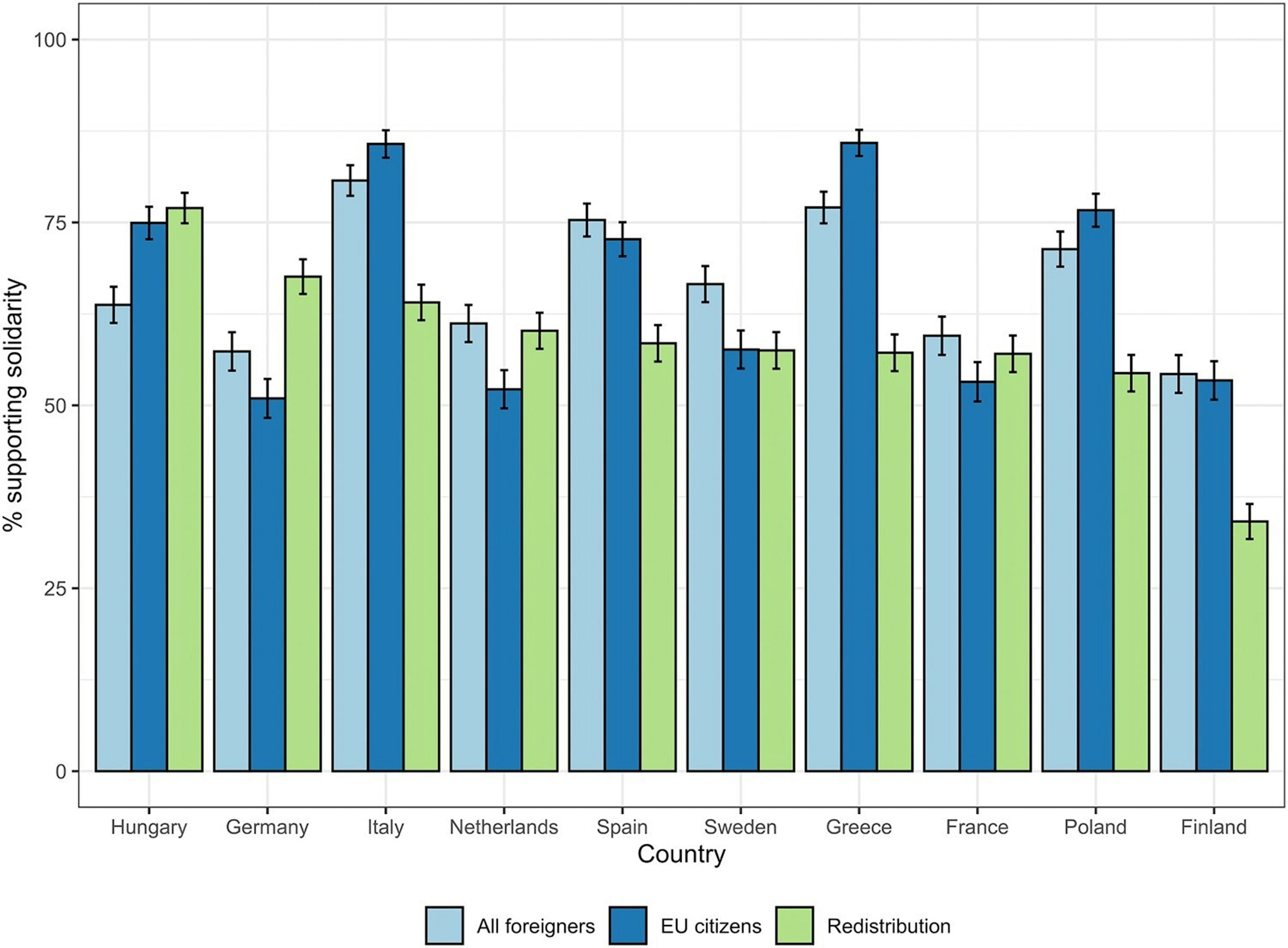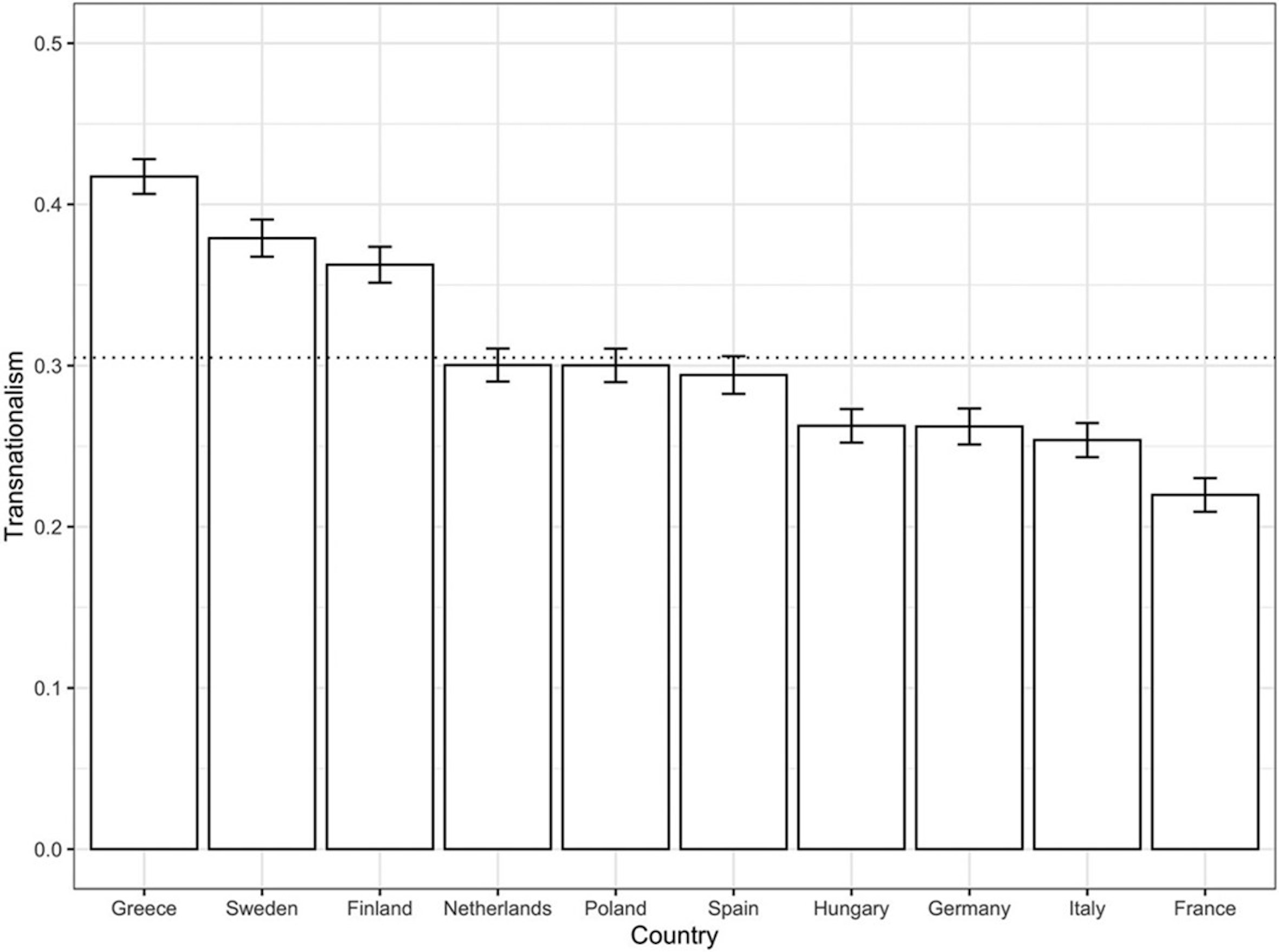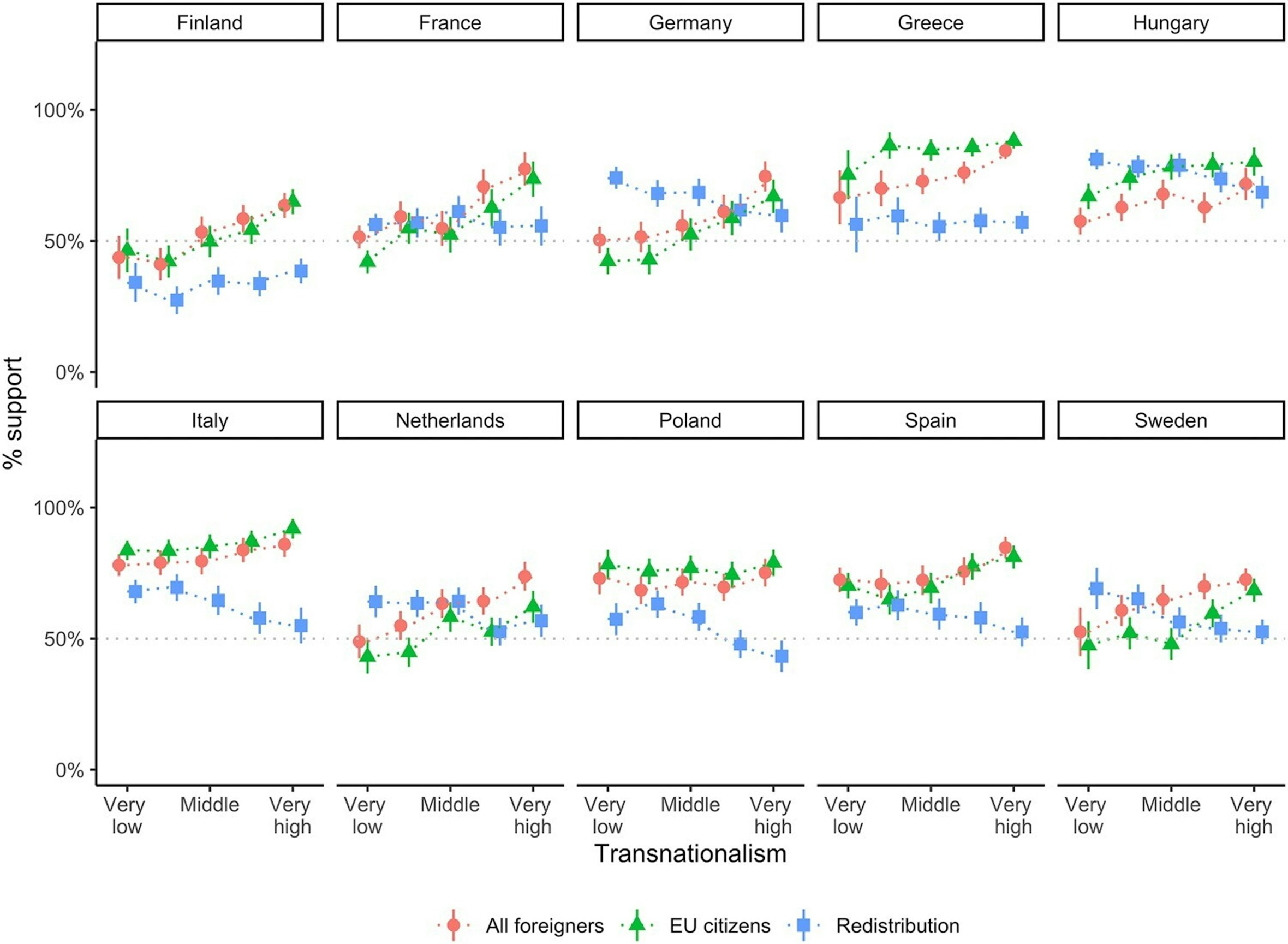
Aree Rurali e Partecipazione: Cosa Cercare?
 Giorgia Zogu
Giorgia Zogu
As a result of globalization and EU integration, more and more people are moving across borders. How do these transnational experiences impact people’s attitudes towards solidarity and redistribution? Transnational citizens are more solidaristic with migrants but less supportive of redistribution to reduce income inequality.
Solidaristic institutions, such as welfare programs and redistribution of income and wealth from rich to poor, have been historically built in nation-states. To this day, it is often assumed that first and foremost, we owe protection and support to our fellow citizens. As borders are becoming increasingly porous, the idea of a nation-based redistribution system is being challenged. For example, immigrants who live and work in a place other than their country of origin may need some form of social assistance where they choose to reside. And a country’s own citizens can hold very different opinions about whether immigrants should receive the same social security benefits that they do. As such, it is interesting to compare this form of ‘mobility-related’ solidarity to a traditional one: the extent to which people think the state should engage in redistribution to reduce social inequality.
In our original survey conducted in 2019 in 10 EU countries, we asked respondents whether they agreed with the statement that EU citizens who reside in a particular country should receive the same social security benefits as the nationals of that country. To understand if EU citizenship made a difference in respondents’ minds, we asked a second related question substituting ‘EU citizens’ with ‘all foreigners legally residents in one’s country’. Finally, we were interested in how solidarity towards migrants compared with a traditional form in terms of whether people were in favor of or against state measures to reduce differences in income levels in their country. Our results showed that there is strong support for all types of solidarity: more than half of the survey respondents agreed that ‘EU citizens’ and ‘all foreigners’ living in said country should have the same access to the welfare state as co-nationals. There was also on average a high level of agreement that the state should engage in redistribution (Figure 1).

In our study, we wanted to understand whether these attitudes towards solidarity and redistribution were affected by the transnational experiences of respondents. We defined transnational experience as the extent to which our respondents lived their own lives in a manner that transcends national borders – even if this does not necessarily implicate physical mobility. As a matter of fact, ever-larger numbers of individuals engage in cross borders experiences each day, especially in the EU, where European citizens can move freely to other member states and whose fortunes are in part governed by supranational institutions. To capture these physical and virtual mobilities we asked our survey respondents about their personal backgrounds, relationships, and habits. For example, if they held more than one citizenship, if they had foreign friends or colleagues or if they spoke foreign languages. Even though these forms of mobility proliferate, highly transnational individuals are still in the minority (Figure 2).

We then proceeded to find out whether and if yes how, the two facets of transnationalization intersect by asking if transnational individuals were more likely to support ‘mobility-related’ solidarity? Indeed, this is what we found, the higher our survey respondents scored on a transnationalism scale, the more likely they were to agree that non-nationals should have access to the domestic welfare state (Figure 3). What is more, asking about ‘EU citizens’ versus ‘all legally resident foreigners’ made no difference. What drives these results? It is thought that as individuals engage with each other across borders, cognitive stances shift towards more open and tolerant perceptions of people of different backgrounds. Consequently, through increasing interaction/transaction, attitudes become more inclusive, and solidarity is extended to non-national ‘others’ as people to whom protection, equality, and inclusion are owed. We also wanted to make sure that it was transnational experiences that really drove these results. For this reason, our focus turned to the relationship between individual transnationalism and support for redistribution to reduce social inequality in terms of a general form of solidarity which does not touch on ethnic diversity in obvious ways. The expectation was to find no link between the two, but surprisingly, we found a negative association: in most countries included in our analysis, as transnationalism increases, respondents tend to be slightly more sceptical about redistributive policies (Figure 3).

This result invites more thinking and more research. Could it be that ‘traditional’ forms of solidarity weaken as new forms become more salient? Until now, there has been some speculation about such a trade-off but no clear empirical result has come to light. Our findings could be an indication of this pattern, though the underlying mechanism is obscure and at odds with existing studies that find transnational allegiances are layered or nested into national ones rather than replacing them.
The key takeaway of our study is that migrants who are often the targets of exclusion and welfare chauvinism, have transnational individuals on their ‘side’. The more one has experiences that span national borders the more they support the inclusion of newcomers into nationally based welfare and social assistance programs. Moreover, the distinction between EU citizens and foreign legal residents does not seem to be relevant in this context. However, we also find that transnationalism does not boost all forms of solidarity equally. Its effect seems to be limited to a type of solidarity that resonates with the transnational experience. It is indeed reasonable for people who have experienced migration or mobility or have friends and relatives from other countries to be especially sensitive to the needs and vulnerabilities of migrants and the need for inclusion. This logic seems to operate quite independently from the more ‘traditional’ question of whether governments should engage in welfare redistribution. The main implication is that in the long run, transnational experiences could shape the preferences and politics of welfare systems as a whole.


This content is licensed under a Creative Commons Attribution 4.0 International license.

 Giorgia Zogu
Giorgia Zogu
 Cholpon Beishalieva
Cholpon Beishalieva

